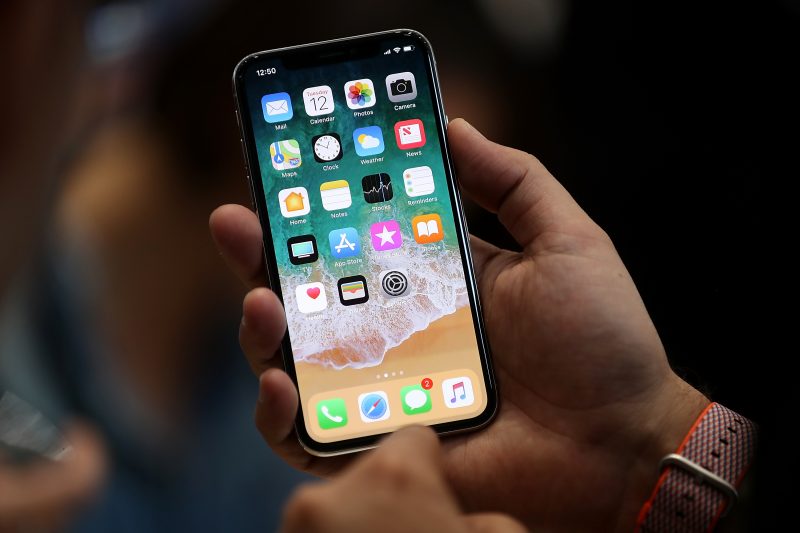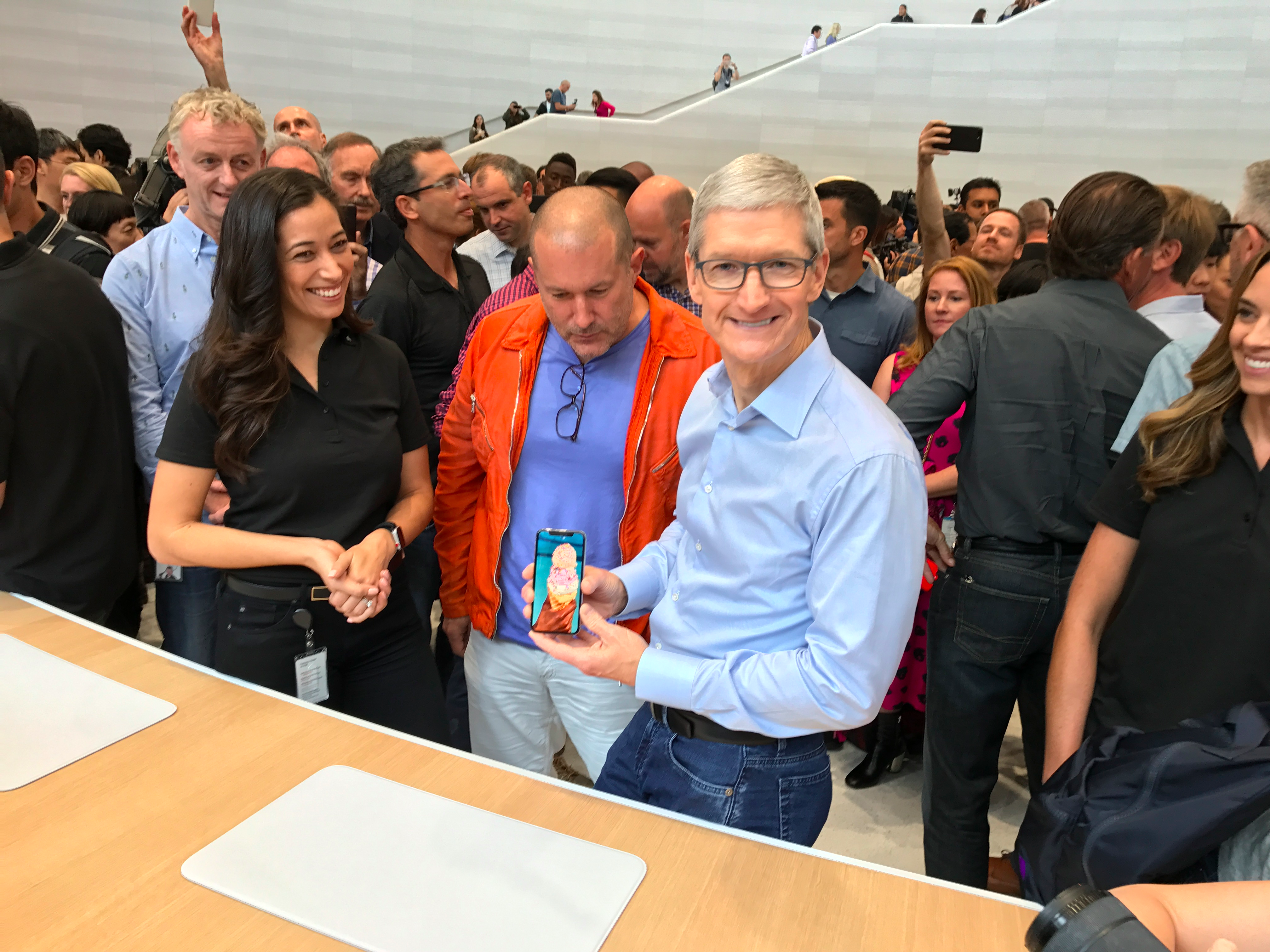Yes, it’s expensive.
The new iPhone X will start at an eye-popping $999 when it goes on sale November 3.
Take some time and absorb that sticker shock.
The iPhone may be celebrating its 10th anniversary, but it’s bucking the notion that technology gets cheaper over time. Even the iPhone 8 and the larger 8 Plus are more expensive than their predecessors at $699 and $799.
So, is the iPhone X worth $1,000?
Before I answer that, here's my general philosophy when buying a smartphone: You should always get the very best phone you can afford. Your phone is the only thing you use all day, every day, and it's one of the few things in life where you shouldn't be thrifty.
With that in mind, I'm not immediately turned off by the iPhone X's price. Instead, the Phone X looks as if it will compare favorably with other similarly expensive but top-of-the-line phones, particularly with Samsung's excellent Galaxy Note 8, which starts at $930.
While I won't be able to get a full look at the iPhone X until closer to its launch date, I did get to spend some time with it during Apple's launch event Tuesday. It's an impressive device. Its most important features are greatly improved compared with those on past iPhones. And when you add all those features up, $999 actually seems like a reasonable price to pay.

The iPhone X's most noticeable difference is its screen. With the new phone, Apple has adopted the broader industry trend of minimizing the borders around phones' displays, so you get a bigger screen that takes up nearly all of the device's front. The iPhone X is only slightly bigger than the iPhone 7, but its screen is larger than that of the jumbo-size iPhone 7 Plus.
But the iPhone X's display isn't just big; it's stunning to look at. The screen quality rivals the displays I've seen on recent Samsung phones. In fact, the iPhone X is the first non-Samsung phone I've seen in years whose screen made me say, "Wow!" (Ironically, the phone's OLED screen was developed by Samsung.)
And the way the screen fits into the iPhone X's design is great too. That giant display makes it feel as if movies and games and web pages are floating in your hand. And the phone's glass back is a welcome change from the scratch-prone aluminum Apple has been using for the past few years. Plus the stainless-steel frame around the glass adds a nice, premium sheen to the phone. It's gorgeous.
But the phone has other premium features, including wireless charging, an improved dual-lens camera system that takes impressive portrait photos, a processor that Apple says is its fastest ever, water resistance, and improved battery life that the company says bests that of the iPhone 7 by two hours. Apple took all the stuff you care about and use the most and made it better.
In terms of features, FaceID, the new facial-recognition feature on the iPhone X, seems to be the only wild card. I wasn't able to test FaceID on Tuesday, but Apple flubbed its first demo of the technology, which may not be a good sign. FaceID will have to perform just as well as, if not better than, the fingerprint sensor it's replacing or Apple could have problems. We'll see how it does in the real world.
But the iPhone X has one more big thing going for it: Apple's ace in the hole, iOS.
iOS remains the best smartphone operating system and the iPhone's biggest advantage over its competition. Apple's operating system is the only smartphone platform that comes with consistent, guaranteed updates. And it's the only one that routinely brings cutting-edge features, like augmented reality, to older phones.
Even if you get one of the older - and cheaper - iPhone models, you're still getting a lot of value out of your purchase simply because of iOS.
So let's add all that up. The iPhone X offers:
- A gorgeous screen and beautiful design. Great cameras, wireless charging, better battery life, and water resistance. The best mobile operating system. All on a device that you'll end up using several hours a day.
Sounds as if it's worth $999 to me.

